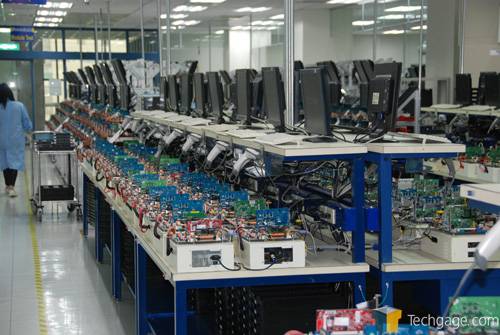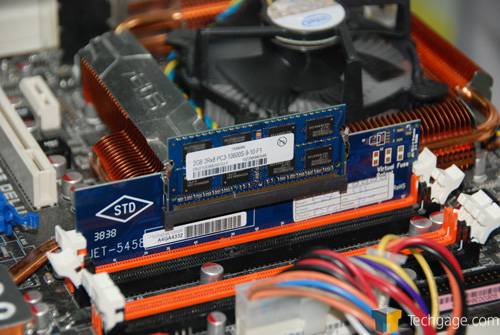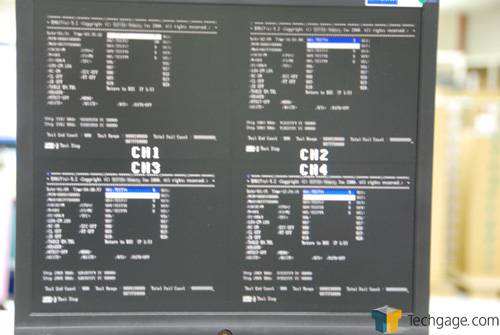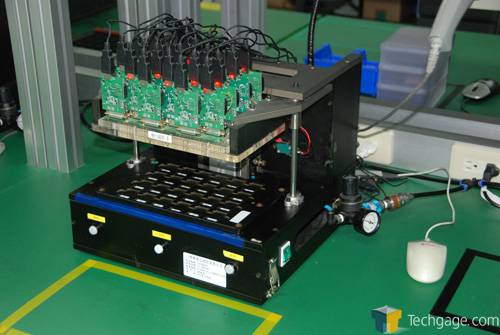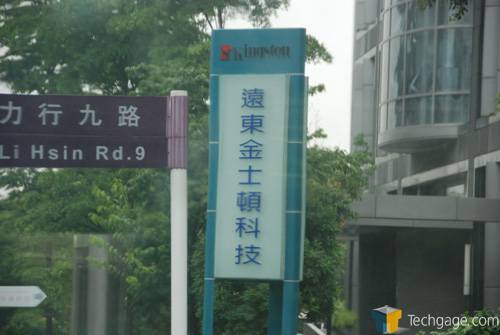- Qualcomm Launches Snapdragon 4 Gen 2 Mobile Platform
- AMD Launches Ryzen PRO 7000 Series Mobile & Desktop Platform
- Intel Launches Sleek Single-Slot Arc Pro A60 Workstation Graphics Card
- NVIDIA Announces Latest Ada Lovelace Additions: GeForce RTX 4060 Ti & RTX 4060
- Maxon Redshift With AMD Radeon GPU Rendering Support Now Available
Taking a Tour of Kingston’s Hsinchu Factory

The best part of being in Taiwan for Computex is that we’re so close to a huge number of companies that we deal with on a regular basis. As Kingston has a factory not too far outside of Taipei, Hsinchu to be exact, the company invited a group of journalists and industry friends to take a tour. We were there, and relay our experiences.
Page 2 – Kingston Tour Continued
In this large room are well over 1,000 PC’s that have the sole purpose of stress-testing memory modules. To test, a worker goes around and turns off a PC if it’s on, replaces the memory module in the special board that’s used in the DIMM slot (if testing SO-DIMMs), then turns the PC back on and waits. At the time of our tour, vendor-specific testing software was being used which matched the vendor of the modules themselves, so I’m not sure if this was standard testing software or if Kingston changes it up depending on the vendor.
The rule of thumb is that each module gets stress-tested with a memtest-like application for a total of 7 minutes per 1GB of density. So for 4GB modules, the testing would commense for 28 minutes. At the end of the test, the computer monitor will say PASS or FAIL. At that point, the worker will turn the PC off, and remove the DIMM to place it with other good modules, or failed modules, depending on which the case may be. I am not sure of the failure rate of these modules, but it must be very low, as I couldn’t see a failed test anywhere.
Up to this point in our tour, we only saw memory modules being built, but up to the next floor we began to see USB thumb drives and other flash media being built. The overall process of building these products isn’t far different from modules, but the testing machines of course are a bit different and so is the building process. Workers here have a bit more of a hands-on job, as they are required to take the finished PCB/IC and build a thumb drive out of it. Depending on the order, they could be building Kingston’s own drives or drives for other companies, such as OEM’s.
From an outsider’s perspective, the process of building modules, flash drives and other memory products seems rather straight-forward. But as you’d expect, there is a lot of work that goes into delivering a quality product, and millions of dollars worth of equipment to make it all happen, not to mention have a company with very high standards and practices, such as Kingston.
As difficult as it may seem to believe, this tour was my absolute first. Since I’ve read tour articles from other editors in the past, I had an idea of what to expect, but I still found the experience to be rather interesting, and rewarding. I have a bit of a newfound respect for the memory modules in my PC (which happen to be Kingston HyperX’s) and thumb drives that get pushed out at such factories. They may seem like simple products, but the process of getting them in your hands couldn’t be much more complex.
Discuss this article in our forums!
Have a comment you wish to make on this article? Recommendations? Criticism? Feel free to head over to our related thread and put your words to our virtual paper! There is no requirement to register in order to respond to these threads, but it sure doesn’t hurt!
Support our efforts! With ad revenue at an all-time low for written websites, we're relying more than ever on reader support to help us continue putting so much effort into this type of content. You can support us by becoming a Patron, or by using our Amazon shopping affiliate links listed through our articles. Thanks for your support!




